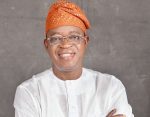Recruitment Crisis: No Federal Character In DSS Recruitment Since 2012 –Shettima
The Acting Chairman of the Federal Character Commission, Dr Abba Shettima, speaks with FIDELIS SORIWEI on recruitment scandals in government agencies and efforts to nip it in the bud
There is a controversy over the alleged lopsided recruitment by the Department of State Services which violated the principles of the federal character. What is your agency doing about it?
Recruitment, whether in the DSS, the military, the police or any other organisation of government, must basically comply with the provisions of the Federal Character Act. Section 14:3 and 4 of the constitution are very clear, and it has no exception either in the executive, judiciary or the legislature. Any government agency that decides to recruit must comply with the Federal Character protocol.
The recruitment exercises carried out by the DSS in 2012, 2013, 2014, and 2015 were without recourse to the Federal Character Commission, despite the fact that we used to write them on each occasion to demand details.
The trend in certain MDAs now is that they have violated the law by recruiting more workers than they needed just to ensure compliance with the principles of the federal character and to address lopsidedness in their recruitment.
We have written the DSS to get their nominal roll and up till now, they have not complied. Unless we look at their nominal roll and ascertain their recruitment on a state by state basis, to see whether certain states are grossly under-represented, not represented or over-represented, we will not clearly come out and say what they have done is lopsided. So, that was why we wrote to them. We cannot know if it is lopsided (without nominal roll) or that they recruited more in Katsina than in any other state.
So, in the event that we discover that it is not a corrective measure, we will issue the appropriate sanctions.
What are some of the options open to you if the agency decides to ignore the commission?
They cannot deliberately ignore us. If they deliberately ignore us, they are violating the law. It is the law that established the DSS and the constitution is very clear about that. If any agency deliberately refuses to comply with the provisions of the Federal Character Act, the commission has every right to take such erring organisation to court. One of the options is litigation; the other option is to complain to the Attorney General of the Federation about what is happening. But our intention is to employ corrective measures and ensure that every Nigerian has equal opportunity to participate in any organisation provided that such an individual is qualified. The leadership of the agency that wants to recruit should come to our office so that we can look at those who applied, those who are being shortlisted and compare them to those who were not shortlisted and why.
Now that they have recruited already and Nigerians are now drawing the attention of the commission to the exercise, will you ask the agency to sack some of the newly recruits?
We are not asking them to go and dismiss people. That will create more problems. We are operating an institution. The fact is that Nigerians are being recruited and they are enjoying the services of the organisation. If we now ask them to be removed, we would be creating more problems than solving them.
How are you going to address the imbalance?
We would sanction the DSS in future recruitment exercise. The law says the chief executive will be liable if he or she refused to comply with the law. So, the only thing we are going to do is to sanction them. We will make sure that in future recruitments, states with the least number are considered first. Most heads of agencies make mistake because they don’t come to the commission to get proper explanations. They should come to the commission to know the procedure to follow. We are avoiding a situation where people from a particular state are overrepresented and you ask them to go.
Before the latest recruitment by the DSS, there were complaints of illegal recruitment in the Central Bank of Nigeria, the National Health Insurance Scheme and the entire civil service. What is the commission doing about those ones that took place in 2015, 2016 and early this year?
Initially, we didn’t have access to their nominal roll. Unless we have access to the document, we will not know which state or part of the country have more people on the list. We used to find it difficult to get the civil service commission to give us their nominal roll. But with this administration and the emphasis on rule of law, MDAs are now giving us their nominal roll. So, if you come to us to say you are recruiting, the first thing we would do is to look at the nominal roll and quickly analyse it to bring out the character balancing index so that it will give us which state is going to get what. We are still talking with the NHIS. They said they would recruit this year; we gave them a template of character balancing index of the states of the federation based on their existing nominal roll and we told them they should comply with that. But the problem we are experiencing is that most of the MDAs don’t like to advertise (recruitment), because of the cost involved.
Do they complete recruitment before they advertise?
They usually come to us and say they are recruiting. They would say that they have a pool of applicants and that they want to tap from that pool. They cannot recruit before coming to us; it is an offence. The laws are very clear. When these things happen, the chief executive officer will be held responsible, so any responsible chief executive officer would run away from such thing. The same thing applies to the CBN. The government gave the management a blanket approval to recruit about 300 to 500 people in 2014. Their recruitment takes time. I could take them about six months. The applicants have to go through an interview, screening, medical test, and so many things.
There are reports that children of top Nigerians form the majority of those that were recruited.
What I am telling you is that as an executive officer, as a Nigerian, as a reporter, everyone has a right to be employed in this country. Simply because you are the son of a permanent secretary or a minister doesn’t stop you (from being employed).
But Nigerians are concerned about the dominance of the elite in the recruitment exercises.
I challenge any journalist and any media house to go and look at the nominal roll of these agencies, and where their parents come from. If the CBN recruits 5,000 people and you have 20 or 30 whose parents are rich, is it a crime?
How many of the agencies have refused to submit their nominal roll to your commission apart from the DSS? Do you read any meaning into their action?
No, even the DSS did not refuse to submit their nominal roll. They refused to respond to our letter. I don’t know whether they are in the process of bringing it. You know nominal roll is not only in Abuja, we don’t miss it in all the 36 states of the federation. The chief executive will not just tell you this is my nominal roll. He has to collect from all these areas in order to get the documents. So, that does not mean that they refused. That is why we said that at least within three months, they are going to report. We started as soon as Sahara Reporters published its report. So, we quickly wrote to them to give us their nominal roll as I have said.
The man (DG DSS) sent me his special assistant yesterday. I wanted to meet him but unfortunately, he is not in town. I want to go and meet him not because I want to lobby him. Let him come so that we can look at the document and then sort things out. I am also very much concerned about it but some people just blow things out of proportion. At lookook at one phase of recruitment, rather we look at the quantum of recruitments. We will look at the total number of staff in that organisation. What we are very much concerned about is not only the people (junior category but also the management cadre aspect of it. The management, for example, should not be dominated by people from a particular area. I don’t think the chairman, the DG, the deputy directors of the DSS are all from one place. If you look at it, they are from different parts of the country.
The Civil Service Commission has never invited the Federal Character Commission to monitor any of its recruitment interviews before until this year.
They are now carrying us along because of the insistence of the Head of the Civil Service of the Federation that they must comply with federal character. That was why, for the first time in the history of this commission, the Federal Roads Safety Corps invited us to monitor their recruitment exercise. Theirs was one of the cleanest exercises they have conducted although they have yet to conclude because there are certain issues we have to sort out. The exercise they did last week was foreign service. Definitely, there are areas where historically you find more people from one state or one region than the other. You cannot just say because of federal character, that you will go and dismiss them and then employ people. We are saying that over time, let the representation be balanced. Let there be equity, fairness and balance.
Are you assuring Nigerians that the commission is not biased in favour of the North because it is headed by a northerner?
No, it is not. If you look at our organisation, that is the reason why every state has a commissioner who will ensure that their state is not shortchanged in any recruitment exercise.








